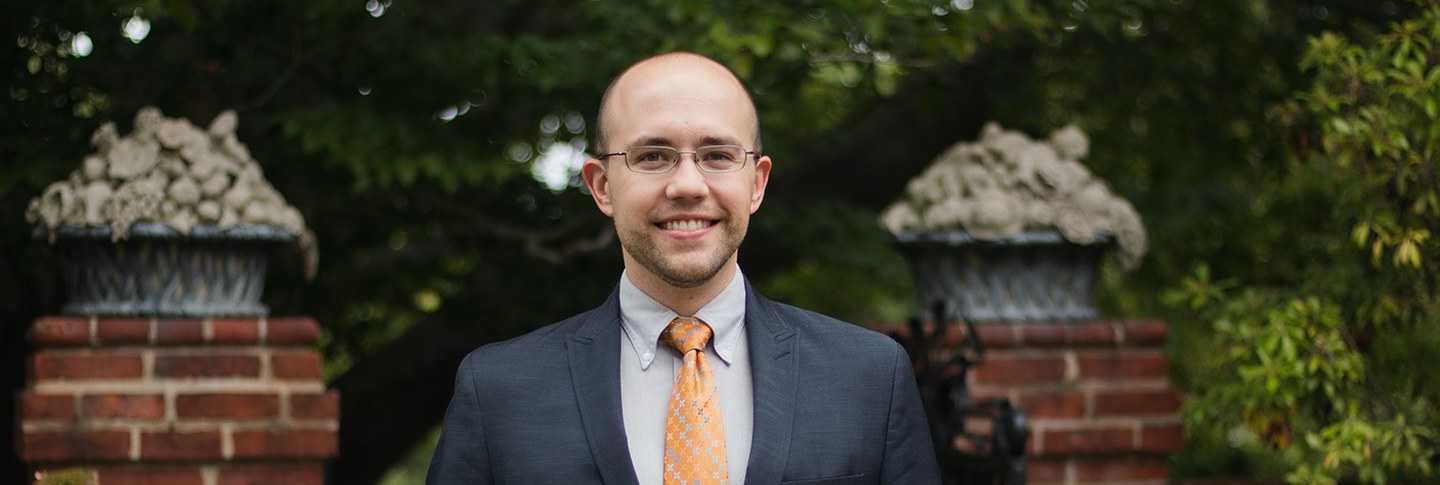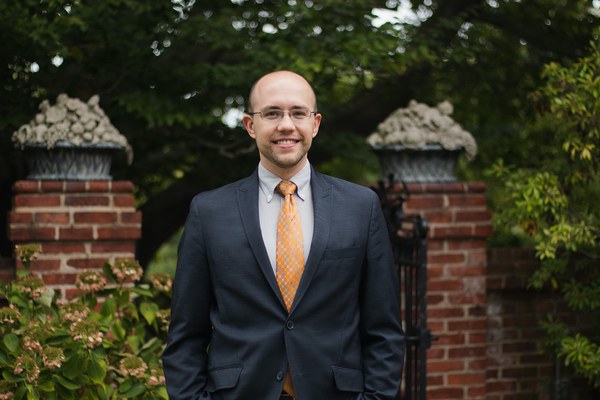Brad Boswell, a PhD candidate in early Christianity at Duke University, was a fall 2019 junior fellow in Byzantine Studies. His research report, “Cyril Against Julian: Traditions in Conflict,” focused on intellectual conflict and the cosmological arguments advanced in an anti-Christian treatise and its lengthy refutation.
Q&A with Brad Boswell
How does narrative conflict provide a new lens on a fifth-century text?
I work on Against Julian, a text written in the 420s by one of the century’s most influential Christian bishops: Cyril of Alexandria. It’s a very long response to Against the Galileans, which was written in the 360s by the emperor Julian. Julian was raised Christian when the Roman Empire had very recently begun to favor Christianity, but he was also influenced by several pagan mystery cults and philosophers. Before becoming emperor, he converted to a philosophical form of the empire’s prior paganism.
The work of philosopher Alasdair MacIntyre has helped me think about the intellectual conflict between Cyril and Julian. MacIntyre suggests that sometimes two traditions (or representatives of traditions) can’t resolve the differences between them by means of shared criteria. Instead they end up engaging in what I call narrative conflict—they try to tell a bigger story than their rival, and they try to reconstrue the central characters or histories from the rival’s narrative within their own.
What’s an example of narrative conflict in the two texts?
In Julian’s Neoplatonic narrative, the whole cosmos is densely populated with different spiritual/divine beings, each with a different role in what happens on earth. Each nation of the world has its own overseeing god and bureaucracy of subordinate spiritual beings that manage the nation’s affairs.
For Julian, this “backstory” is essential for explaining the diversity of features among different people. Greeks and Romans are different from Germans who are different from Celts, he says, because the different characteristics of their governing gods cause the differences between the peoples.
Cyril obviously differs in his understanding of the cosmos and of the spiritual forces at work therein. For Cyril, one triune God created all things, including a class of spiritual beings that split into faithful angels and rebelling demons. Demons organize rebellion among humans, trying to lead people astray from the true God.
When arguing with Julian, Cyril presumably could have just asserted that there is only one God, and that Julian fabricated his “gods,” who don’t really exist. Instead, Cyril reconstrues Julian’s gods as characters in the Christian narratives—he insists that the beings Julian thinks are gods are in fact rebellious demons masquerading as legitimate sub-rulers. Julian, he says, has been fooled, and is therefore complicit in the ongoing rebellion against the right rule of the cosmos.
You’ve got two grand stories meant to be maximally explanatory for the whole cosmos. In this case, the stories give rivaling explanations of the spiritual beings who have direct influence and activity among humans. This is a simple example of what “narrative conflict” looks like, but it also becomes illuminating if you try to make sense of the more philosophically technical disputes in Against Julian (about creation, providence, causality, etc.) that implicate the gods/demons.
How have you worked with another Byzantine fellow, Matthew Crawford?
Matthew Crawford and I both work on Against Julian, which is long and unwieldy, and which hasn’t been translated into English. So a lot of what we do is translate together, which also leads to stimulating discussions about the text. For example, one of the questions Matt and I have been circling around is how Julian’s concept of history might differ from Cyril’s.
Take the historical character of Moses. Julian applauded Moses, partially because his laws included lots of sacrificial customs, and Julian’s form of paganism also valued sacrifice. Julian says Christians can’t claim Moses for their camp because they don’t practice all the sacrifices he commanded.
This is a problem for Cyril and all early Christians. In responding, Cyril follows the general contours of the normal Christian response: he traces a progression of human understanding about God. Earlier people were less prepared to understand more advanced truths. Moses, who was particularly insightful and wise, grasped this. He gave rituals and taught about God in a way that was accessible to his people, who were used to the rituals they learned from other nations. But the progress of history included a maturing of God’s people who could, eventually, understand God more directly.
So history, for Cyril, has a strong element of progress: there’s a clear movement towards knowledge of and communion with God. There are some similarities with Julian on progressive knowledge, but talking with Matt about this has helped me see how history is also a static entity for Julian. The ordering of the cosmos is a direct reflection of a divine hierarchy of gods, and the change that occurs in human history is really just an alignment with that divine, static ordering.
Julia Ostmann is postgraduate writing and reporting fellow at Dumbarton Oaks. Photo by Elizabeth Muñoz Huber, postgraduate digital media fellow.

